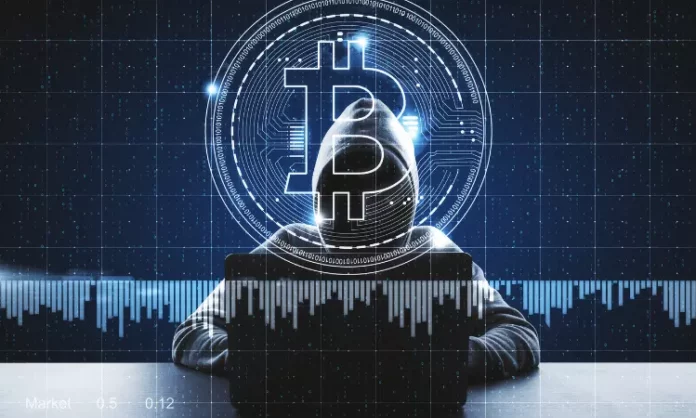Cryptocurrency has taken the financial world by storm, offering an exciting new way to transact and invest.
Yet, with its meteoric rise, concerns about safety and security have also grown.
In this article, we will explore the fundamental question: Is cryptocurrency safe?
We will delve into the various aspects of cryptocurrency security, including blockchain technology, wallet security, and the risks associated with cryptocurrency investments.
By the time you finish reading, you’ll have a clearer understanding of the safety measures and precautions necessary to navigate the world of cryptocurrencies confidently.
Is Cryptocurrency Safe?
Cryptocurrency’s safety is a debated topic.
While the underlying blockchain technology provides robust security through decentralization and cryptography, risks still exist.
Hacking of crypto exchanges, phishing attacks, and wallet vulnerabilities are major concerns.
However, users can enhance safety by using strong passwords, enabling two-factor authentication, and opting for good hardware wallets.
Selecting reputable cryptocurrency exchanges and staying informed about regulatory developments is crucial.
The evolving nature of security threats requires ongoing vigilance.
While advancements in biometrics, decentralized exchanges, and quantum-resistant cryptography show promise, no system is entirely immune.
With prudent practices and a commitment to staying informed, individuals can navigate the cryptocurrency landscape safely.
Understanding Cryptocurrency Security.
At the heart of every cryptocurrency’s security lies the revolutionary blockchain technology.
A blockchain is a digital ledger that keeps track of all events across a network of computers.
It is decentralised and can’t be changed.
This distributed nature ensures that no single entity has control over the entire blockchain, mitigating the risk of a central point of failure.
Moreover, transactions on the blockchain are secured using cryptographic techniques, making them highly resistant to manipulation or tampering.
Within this framework, public and private keys play an important role in securing cryptocurrency transactions.
Public keys, akin to an address, are shared openly and allow users to receive funds.
However, it’s the private key that holds the key to security.
This confidential key, known only to the owner, grants access to their cryptocurrency holdings.
This system ensures that while transactions are transparent and verifiable, access to one’s assets remains exclusive.
Common Security Threats.
Cryptocurrencies, while hailed for their innovation and transformative potential, are not immune to a range of security threats.
In this section, we’ll delve deeper into these common security threats, shedding light on the risks that users may encounter in the cryptocurrency ecosystem.
1. Hacking And Unauthorized Access.
Cryptocurrency exchanges, which act as intermediaries for buying, selling, and trading digital assets, have become prime targets for hackers.
These hackers exploit vulnerabilities in crypto exchange platforms to gain unauthorized access to user accounts, allowing them to withdraw funds.
High-profile breaches of major exchanges have demonstrated the severity of this threat, with millions of dollars lost to hacking incidents.
2. Phishing Attacks And Social Engineering.
Phishing attacks are a persistent threat in the cryptocurrency space.
Scammers employ social engineering tactics to trick users into revealing their private keys, wallet passwords, or login credentials.
These deceptive campaigns often take the form of convincing emails, fake websites, or even phone calls, luring unsuspecting victims into divulging sensitive information.
Once obtained, this data can be used to gain unauthorized access to cryptocurrency wallets and drain them of their contents.
3. Malware Targeting Cryptocurrency Wallets.
Malware specifically designed to target cryptocurrency wallets has proliferated in recent years.
These malicious programs can infect a user’s device, giving cybercriminals access to private keys and wallet information.
This type of malware often operates silently, making it challenging for users to detect until it’s too late.
Consequently, users are at risk of losing their digital assets without any immediate awareness of the breach.
4. Ponzi Schemes And Fraudulent ICOs.
Outside the realm of technology-based threats, cryptocurrency investors must also be wary of financial scams.
Ponzi schemes and fraudulent Initial Coin Offerings (ICOs) have lured unsuspecting individuals with promises of extraordinary returns on their investments.
Unfortunately, these schemes typically involve little more than empty promises and unscrupulous actors who vanish once they’ve amassed enough funds.
Countless investors have fallen victim to such scams, resulting in significant financial losses.
5. Insider Threats And Exchange Vulnerabilities.
Even cryptocurrency exchanges themselves are not immune to security breaches.
Insider threats, which involve individuals within the exchange organization exploiting their position to compromise user data or manipulate transactions, can pose a significant risk.
Additionally, vulnerabilities in exchange infrastructure, software, or protocols can be exploited by external actors to gain unauthorized access or manipulate trading activities.
6. Scams.
Cryptocurrency scams exploit the decentralized and anonymous nature of digital currencies.
Giveaway scams impersonate influencers, luring victims with offers of free crypto in exchange for fees or personal data.
Pump-and-dump schemes inflate a coin’s price through deception before crashing it, causing losses for late buyers.
Investment scams promise unreal returns, vanishing after collecting funds.
Vigilance, skepticism, and thorough research are crucial to protect against these fraudulent schemes and maintain cryptocurrency’s integrity.
Safety Measures For Cryptocurrency Users.
In this digital age, a robust cybersecurity posture is paramount for cryptocurrency users.
To begin with, creating strong and unique passwords for each cryptocurrency-related account is a fundamental step.
Two-factor authentication (2FA) adds an extra layer of security by requiring users to provide a second piece of evidence, often from a separate device, before gaining access.
Hardware wallets, a form of cold storage, have gained popularity as the most secure way to store cryptocurrencies.
These physical devices store private keys offline, away from the reach of hackers.
On the software front, secure wallets equipped with advanced encryption and security features offer a convenient yet secure option for storing and managing digital assets.
Regularly updating software and applying security patches further fortifies your defense against potential threats.
A multi-faceted approach to security, combining strong authentication practices with secure storage solutions, is essential for safeguarding your cryptocurrency holdings.
By adopting a proactive stance, users can significantly mitigate the risk of falling victim to malicious actors.
Choosing Reliable Exchanges And Wallets.
Selecting the right cryptocurrency exchange and wallet is a critical decision that significantly impacts your security.
Conduct thorough research on exchanges before registering, taking into consideration factors such as their reputation, security features, and user reviews.
Reputable exchanges implement robust security measures like cold storage of funds and regular security audits.
When it comes to wallets, users have multiple options, each with its own set of advantages.
Software wallets, though vulnerable to hacking, offer accessibility for everyday transactions.
Hardware wallets, on the other hand, provide an offline storage solution that greatly minimizes the risk of unauthorized access.
Paper wallets, a physical printout of your keys, offer an air-gapped option for long-term storage.
Diversifying your assets across multiple wallets adds an extra layer of protection, reducing the potential impact of a security breach.
The choice of an exchange or wallet is akin to choosing a secure vault for your digital assets.
Informed decision-making is the cornerstone of robust security practices in the cryptocurrency landscape.
Regulation And Legal Considerations.
Cryptocurrency’s unregulated nature has been both a boon and a bane.
While it allows for decentralized financial transactions, it also exposes users to risks in terms of fraud and legal ambiguities.
The evolving landscape of cryptocurrency regulations seeks to strike a balance between innovation and user protection.
Adhering to legal requirements not only safeguards your assets but also contributes to the legitimacy of the broader cryptocurrency ecosystem.
As governments around the world grapple with the regulatory framework for cryptocurrencies, users must stay attuned to the evolving legal landscape.
Responsible participation in the cryptocurrency market requires an understanding of both the potential opportunities and the associated legal responsibilities.
Best Practices For Secure Transactions.
When engaging in cryptocurrency transactions, certain best practices can significantly enhance security.
Always verify wallet addresses before initiating transactions to avoid falling victim to address-switching scams.
Double-checking transaction details, such as the amount being sent and the recipient’s address, ensures accuracy and prevents errors.
Privacy coins, designed to enhance anonymity, can offer an added layer of confidentiality for sensitive transactions.
Additionally, smart contracts, while revolutionary, should be approached with caution due to potential vulnerabilities.
Mitigating the risks of transaction-related errors or vulnerabilities is essential for maintaining the integrity of the cryptocurrency ecosystem.
Diligence and attention to detail are the cornerstones of secure and accurate transactions.
Future Innovations In Cryptocurrency Security.
The realm of cryptocurrency security is in constant flux, with new innovations continuously reshaping the landscape.
Biometric authentication, utilizing unique physical traits such as fingerprints or facial recognition, offers a highly secure way to access digital assets.
The emergence of decentralized exchanges (DEXs) redefines security in trading, as they eliminate the need for users to trust a central authority with their funds.
Advancements in quantum-resistant cryptography are also poised to address the potential threat posed by quantum computers to traditional cryptographic methods.
Artificial Intelligence (AI) and machine learning algorithms are being employed to detect and prevent security breaches by identifying unusual patterns and behaviors.
The drive for innovation in cryptocurrency security reflects the collaborative effort to stay ahead of emerging threats.
Embracing these advancements is pivotal for maintaining the trust and security of the cryptocurrency ecosystem.
Conclusion.
The safety of cryptocurrencies is a multifaceted issue that demands careful consideration and proactive measures.
While the blockchain technology underlying cryptocurrencies offers robust security features, the risks associated with theft, scams, and market volatility cannot be underestimated.
As investors and users of digital assets, it’s essential to stay informed, exercise caution, and implement best practices to safeguard your crypto holdings.
By following security protocols, staying vigilant against scams, and staying informed about regulatory developments, you can significantly reduce the risks associated with cryptocurrencies and enjoy the benefits they offer.
Ultimately, cryptocurrency safety is a combination of technology, education, and prudent decision-making, ensuring that you can participate in this exciting financial revolution with confidence and peace of mind.







